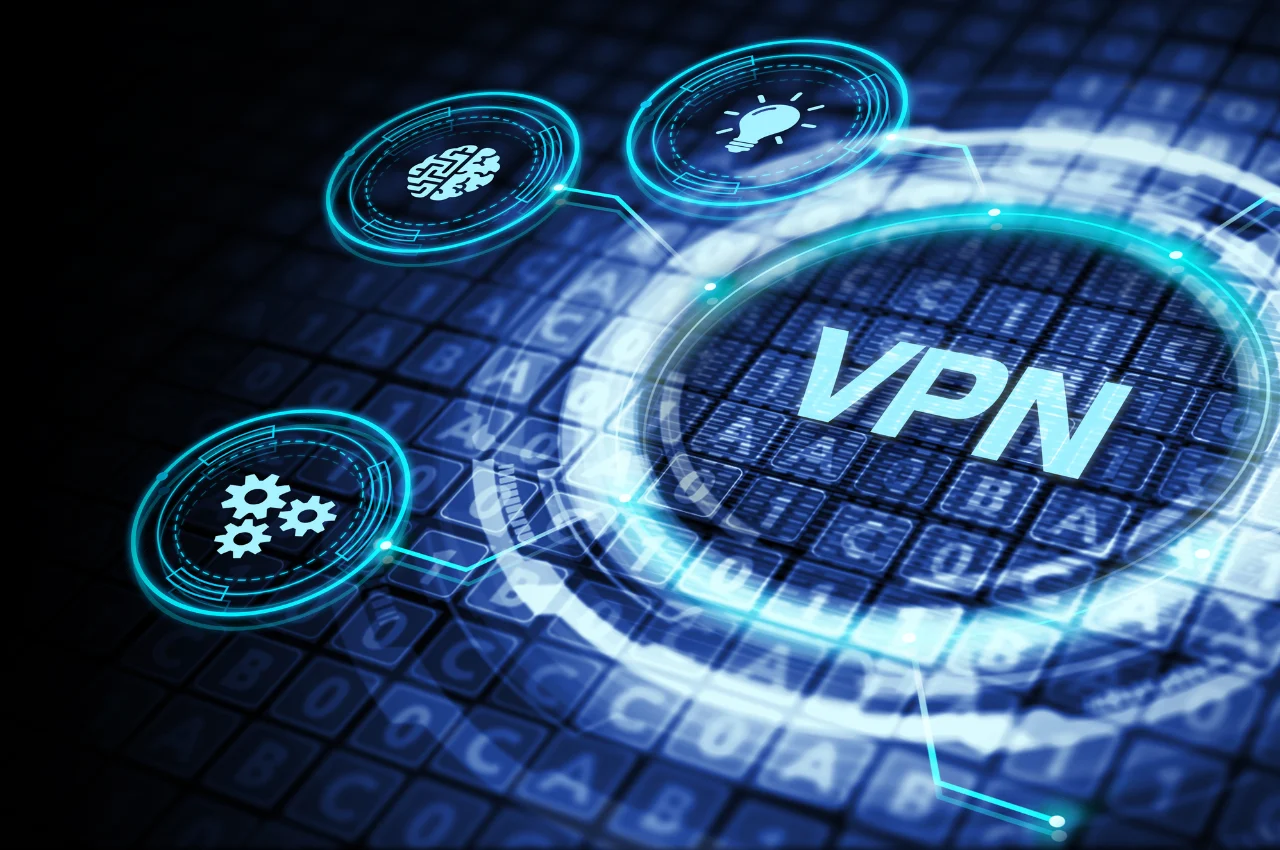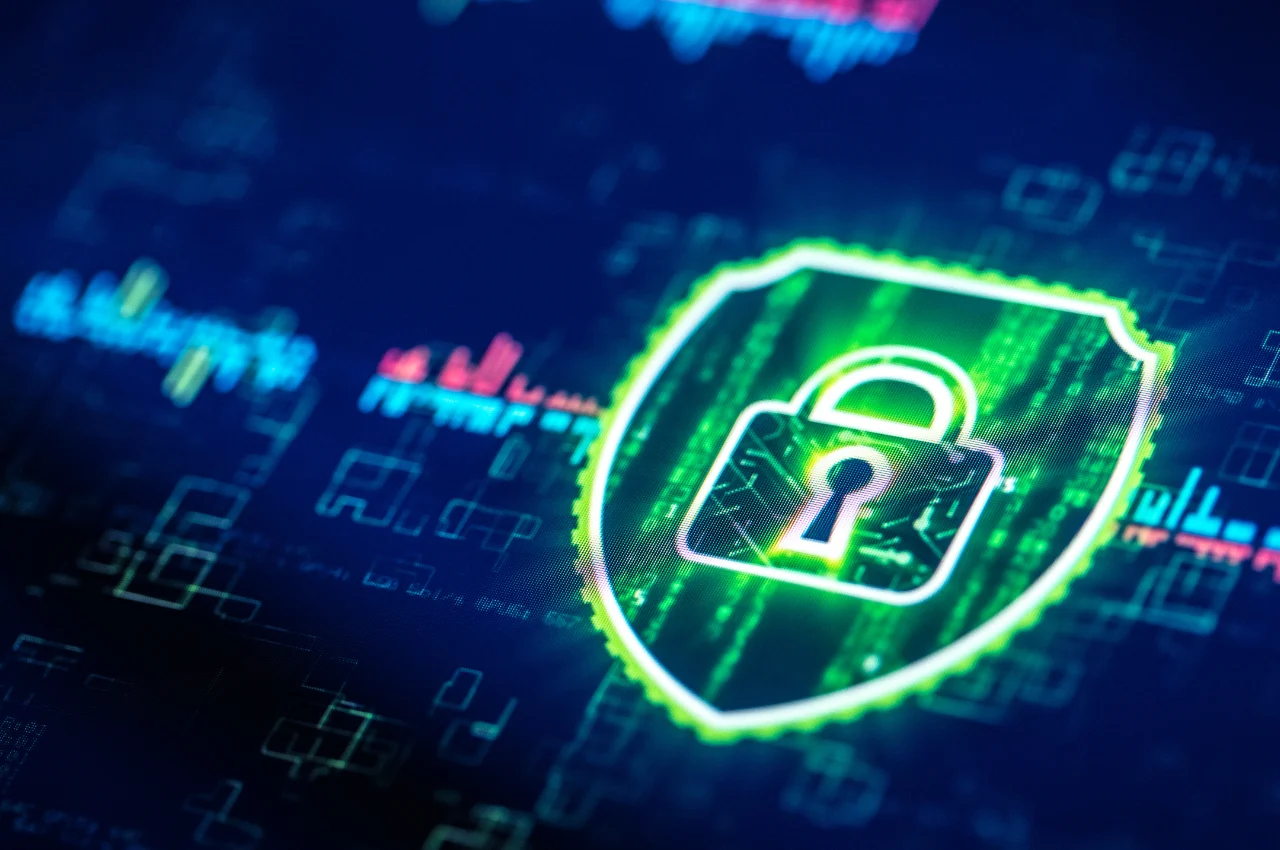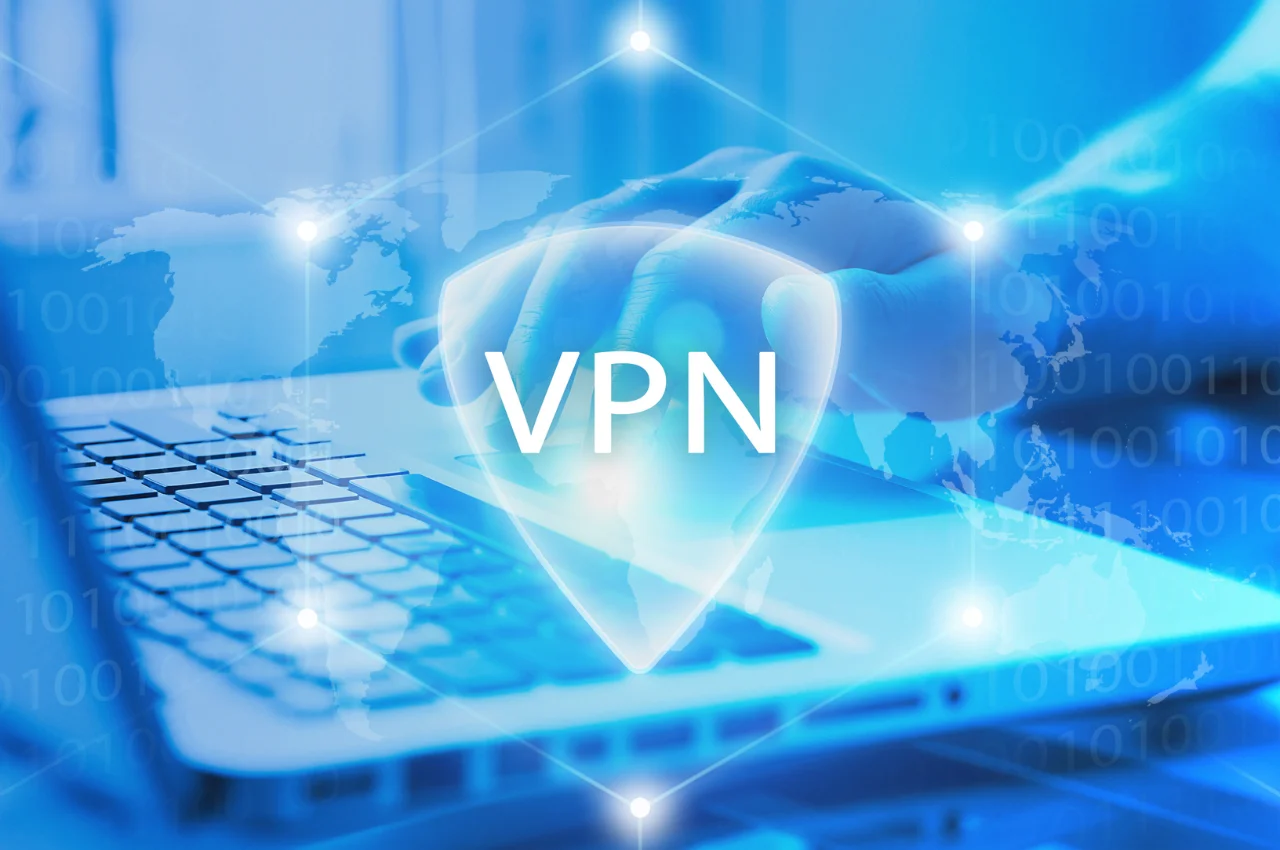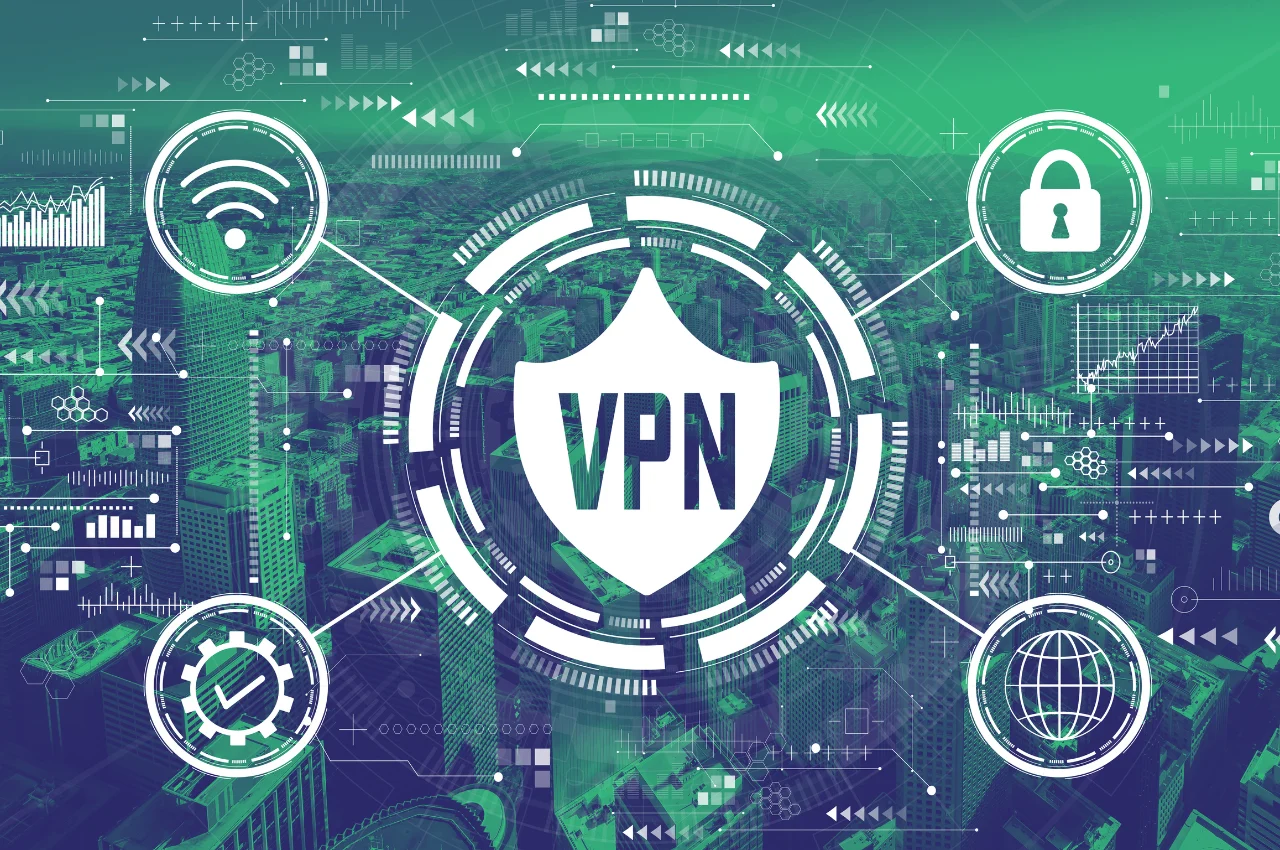A VPN, or Virtual Private Network, encrypts your internet connection and routes it through a server to protect your online privacy and security. In today’s digital age, online privacy and security are of utmost importance.
With cybercrimes on the rise, people are turning to VPNs for a safer and more private online experience. A VPN creates a secure and encrypted connection between your device and the internet, making it difficult for hackers or other malicious entities to intercept your online activity. Additionally, using a VPN allows you to access restricted content, bypass internet censorship, and maintain anonymity online. We will explore the benefits and drawbacks of using a VPN, how it works, and what to look for when choosing a VPN service.
Table of Contents
How VPN Works
A VPN, or Virtual Private Network, works by creating a secure and encrypted connection between your device and the internet. This allows you to protect your online privacy and data, as well as access content that may be restricted in your location.

Encryption of Data
Encryption involves the process of converting data into a code to prevent unauthorized access. When you connect to a VPN, your data is encrypted, making it unreadable to anyone who may intercept it. This ensures that your online activities, such as browsing and messaging, remain private and secure.
Routing of Internet Traffic
When you use a VPN, your internet traffic is routed through a secure server before reaching its destination. This means that your actual IP address is hidden, and your online activities appear to be originating from the VPN server’s location. As a result, you can bypass geographic restrictions and access content that may be blocked in your region.
Benefits of Using a VPN
Virtual Private Networks (VPNs) offer numerous benefits for enhancing online security and privacy. First, they provide data encryption, protecting your sensitive information from hackers and unauthorized access, especially on public Wi-Fi networks. VPNs also hide your IP address, making your online activities more anonymous and allowing you to bypass geographic content restrictions by connecting to servers in different locations. This is particularly useful for accessing region-locked content on streaming platforms. Additionally, VPNs can help secure your browsing against tracking and surveillance by advertisers and governments. Overall, using a VPN improves your online security, privacy, and freedom, ensuring a safer and more private internet experience.
Enhanced Online Security
Enhanced online security is a key benefit of using a Virtual Private Network (VPN). A VPN encrypts your internet connection, creating a secure tunnel between your device and the internet. This encryption protects your data from prying eyes, including hackers and ISPs, ensuring that your online activities remain private. By masking your IP address, a VPN also helps prevent tracking and targeted advertising. Additionally, VPNs enable safe access to public Wi-Fi networks, reducing the risk of data breaches. Overall, using a VPN significantly strengthens your online security and privacy, providing a safer browsing experience.
Anonymity and Privacy Protection
Using a Virtual Private Network (VPN) significantly enhances your anonymity and privacy protection online. A VPN encrypts your internet connection, ensuring that your browsing activities remain confidential and secure from prying eyes, including ISPs and hackers. By masking your IP address, a VPN prevents websites and online services from tracking your location and personal information. This added layer of anonymity helps protect against data breaches and identity theft, allowing you to browse the web with greater peace of mind. Additionally, a VPN can bypass geographic restrictions and censorship, providing unrestricted access to content while maintaining your privacy.
Access to Geo-restricted Content
One of the key benefits of using a VPN is the ability to access geo-restricted content. Many online services, such as streaming platforms, news websites, and social media, restrict access based on geographic location due to licensing agreements or regional regulations.
A VPN, or Virtual Private Network, helps bypass these restrictions by masking your IP address and routing your internet traffic through servers in different countries. This makes it appear as though you are accessing content from a location where it is available, allowing you to enjoy a broader range of online content and services. With a VPN, you can easily unlock global media, access region-specific websites, and experience the internet without borders.
Types of VPN Protocols
When it comes to Types of VPN Protocols, it’s essential to understand the various protocols that govern the security and functionality of a VPN connection.
Openvpn
OpenVPN is a widely used open-source VPN protocol known for its robust security and flexibility. It operates by creating a secure, encrypted connection between your device and the internet, ensuring your data remains private and secure. OpenVPN supports various encryption methods and offers strong security features, including SSL/TLS for key exchange and up-to-date cryptographic protocols. It’s highly configurable, allowing users to tailor their VPN settings to meet specific needs, such as adjusting encryption levels or selecting different authentication methods.
Additionally, OpenVPN is compatible with a wide range of operating systems, including Windows, macOS, Linux, iOS, and Android, making it a versatile choice for diverse environments. Its open-source nature allows for continual updates and improvements from a global community of developers. For those seeking a secure, customizable, and reliable VPN solution, OpenVPN is a robust choice.
L2tp/ipsec
L2TP/IPsec is a popular VPN protocol that combines Layer 2 Tunneling Protocol (L2TP) with IPsec (Internet Protocol Security) to offer enhanced security and privacy. L2TP creates a secure tunnel for data transmission, while IPsec provides encryption and authentication, ensuring that data is both securely transmitted and protected from unauthorized access.
L2TP/IPsec is known for its strong security features, including 256-bit encryption and robust data integrity checks, which protect against eavesdropping and tampering. It’s widely supported across various operating systems and devices, making it a versatile choice for establishing secure connections. However, L2TP/IPsec can sometimes face challenges with performance and firewall compatibility due to its reliance on multiple protocols and ports. Despite this, it remains a favored option for those seeking a reliable and secure VPN solution, especially in environments where strong encryption and secure tunneling are critical.
SSTP
SSTP is a protocol developed by Microsoft, designed for secure communication over the internet, especially in Windows environments.
Ikev2
IKEv2 is known for its stability and ability to quickly re-establish a connection if disrupted, making it ideal for mobile devices.
WireGuard
WireGuard is a cutting-edge VPN protocol known for its simplicity, efficiency, and strong security features. Designed to be easy to deploy and configure, WireGuard offers a streamlined approach compared to traditional VPN protocols. It operates with a minimal codebase, which reduces the potential for security vulnerabilities and simplifies maintenance.

WireGuard uses state of the art cryptography, including the ChaCha20 cipher for encryption and Poly1305 for message authentication, providing high levels of security and performance. It supports modern encryption algorithms and offers fast connection speeds, making it ideal for both high-speed and low-latency applications. One of WireGuard’s key advantages is its ease of configuration. Unlike more complex protocols, it requires fewer steps to set up, making it accessible even for users with minimal technical expertise. Its performance is generally superior to older protocols, offering faster speeds and lower overhead.
Supported on various platforms including Windows, macOS, Linux, iOS, and Android, WireGuard is becoming increasingly popular for its blend of security, speed, and simplicity. For users seeking a modern, efficient VPN solution, WireGuard represents a significant advancement in VPN technology.
Choosing The Right VPN Service
Choosing the right VPN service involves several key factors. Start by evaluating its security features, such as strong encryption (e.g., AES-256) and a kill switch. Check the performance—look for server locations, connection speeds, and bandwidth limits. Ensure it’s easy to use and compatible with all your devices. Review the privacy policies to ensure minimal data logging. Lastly, compare costs, as paid services often offer better security and performance. Evaluate options through reviews and trials to find the best fit.
Logging Policies
When choosing a VPN service, it’s crucial to pay attention to the logging policies. Look for VPN providers that have a strict no-logging policy to ensure your online activities remain private.
Server Locations
When choosing the right VPN service, server locations play a crucial role. A VPN with a broad network of servers in various countries allows you to bypass geo-restrictions and access content from around the world. More server locations generally mean better performance and reduced latency, as you can connect to a server closer to your physical location. Additionally, having multiple server options helps avoid congestion and improves overall connection speeds. Ensure the VPN you choose offers a diverse range of server locations to meet your specific needs for streaming, browsing, and accessing regional content.
Speed and Bandwidth
Check the speed and bandwidth offered by the VPN service. Opt for a VPN that provides high-speed connections and unlimited bandwidth to ensure a smooth browsing and streaming experience.
Device Compatibility
Ensure the VPN service is compatible with all your devices, including laptops, smartphones, and routers. Choose a VPN that offers multi-platform support for seamless protection across all your devices.
Common Misconceptions About VPNs
VPN is often misunderstood as a tool for illegal activities, but its main purpose is to protect your online privacy and security by encrypting your internet traffic. It also allows you to access geo-restricted content and bypass censorship.
VPN Slows Down Internet Speed
Contrary to popular belief, VPNs don’t always slow down your internet connection significantly. While there may be a slight reduction in speed due to encryption, advanced VPN services optimize performance to minimize any noticeable impact.
VPN Guarantees Complete Anonymity
Many people assume that using a VPN automatically ensures complete anonymity online. However, it’s important to understand that while VPNs do enhance privacy, they do not offer foolproof anonymity and can still be subject to limitations and potential data leaks.
VPN Usage Scenarios
A Virtual Private Network (VPN) is a crucial tool that provides a secure and private connection to the internet. It allows users to browse the web anonymously and access content that may be restricted in their region. VPN usage scenarios encompass various aspects of online security, privacy, and accessibility.
Remote Work
Remote work has become increasingly prevalent, and VPNs play a crucial role in ensuring the security and privacy of remote workers. By using a VPN, employees can securely connect to their company’s network from anywhere, mitigating the risks associated with accessing sensitive data over unsecured networks.
Public WIFI Security
When using public Wi-Fi networks, individuals are vulnerable to security threats. Public Wi-Fi Security is a major concern, but VPNs can effectively safeguard users’ data by encrypting their internet connection, thus preventing unauthorized access to their information.
Bypassing Censorship
Bypassing Censorship is another significant application of VPNs, particularly in regions with restricted internet access. By connecting to a VPN server in a different location, users can circumvent censorship and access content that may be blocked in their country.
Future of VPN Technology
The future of VPN technology is an exciting and rapidly evolving landscape. As the digital world continues to expand, the need for secure and private internet connections becomes increasingly crucial. VPNs are at the forefront of this movement, offering users a reliable way to protect their online activities and data. Let’s delve into the potential advancements in VPN technology and the role it may play in the future.

Integration with IoT Devices
With the proliferation of Internet of Things (IoT) devices, the integration of VPN technology has become paramount. VPN services are expected to seamlessly integrate with a wide range of IoT devices, ensuring that every connected device enjoys the benefits of a secure and private network. This integration will enhance the overall security and privacy of IoT ecosystems, safeguarding sensitive data transmitted between these interconnected devices.
Enhanced Privacy Features
As privacy concerns continue to grow, VPN providers are expected to introduce enhanced features to address these issues. Advanced encryption protocols and privacy-centric tools will be integrated to provide users with an unparalleled level of privacy and anonymity. These advancements will empower users to browse the internet with confidence, knowing that their online activities are shielded from prying eyes and potential threats.
Conclusion
A VPN provides online privacy and security by encrypting your internet connection. It allows you to access geo-blocked content and shields your data from hackers and surveillance. With the increasing importance of online security, using a VPN is a crucial step towards safeguarding your digital presence.


